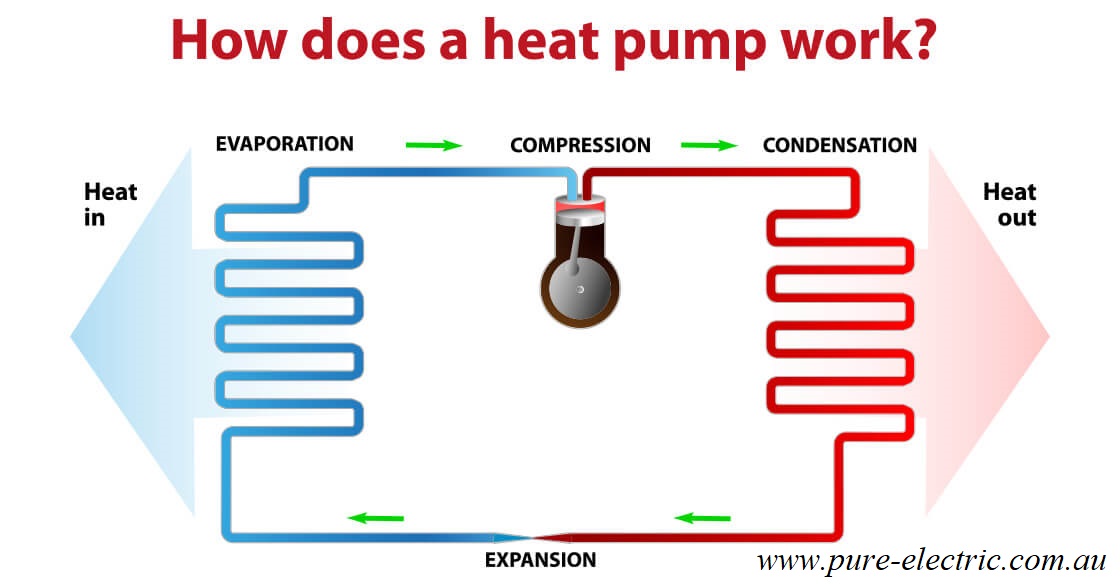1. What is a heat pump ?
A heat pump is a device that moves heat from the outdoors to the indoors, or vice versa depending on your needs. Similar to a refrigerator, the heat pump evaporates refrigerant at low pressure to absorb heat from its surroundings and then condenses the refrigerant at high pressure on the other coil to release the heat absorbed earlier.
You can have this process warm or cool your home, and the energy savings are fantastic over electric baseboard, especially in North American climates with high weather variance.
2. Types of Heat Pumps
Air source heat pumps
An air-source heat pump can deliver one-and-a-half to three times more heat energy to a home than the electrical energy it consumes.
Ductless mini-split heat pumps
Ductless, mini-split-system heat pumps (mini splits) make good retrofit add-ons to houses with "non-ducted" heating systems, such as hydronic (hot water heat), radiant panels, and space heaters (wood, kerosene, propane).
Geothermal (ground source) heat pumps
Geothermal and water-source heat pumps are able to heat, cool, and, if so equipped, supply the house with hot water. Relative to air-source heat pumps, they are quieter, last longer, need little maintenance, and do not depend on the temperature of the outside air.
3. How does a heat pump work?

Heat pumps work by using refrigerant to absorb and release heat energy through a process that pressurizes the gas to heat it up and depressurizes it to cool it down. There are several different types of heat pumps, such as geothermal and air-to-water, however, air-source heat pumps are the most common.
Think of an aerosol can or a bicycle pump. When you release air (a.k.a. pressure) the released gas feels cold. If you add pressure, you will notice that the bicycle tire heats up.
When the refrigerant changes states, from a liquid to a gas, the temperature changes. The refrigerant is designed to reach certain temperatures at specific pressures for optimum efficiency (the common R-22 coolant, or HCFC-22, is being phased out and replaced by a new, more environmentally friendly coolant, R-410A).
Related Contents

